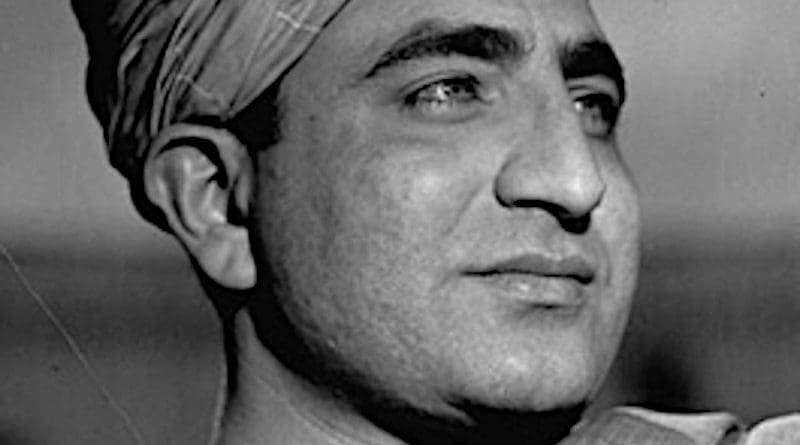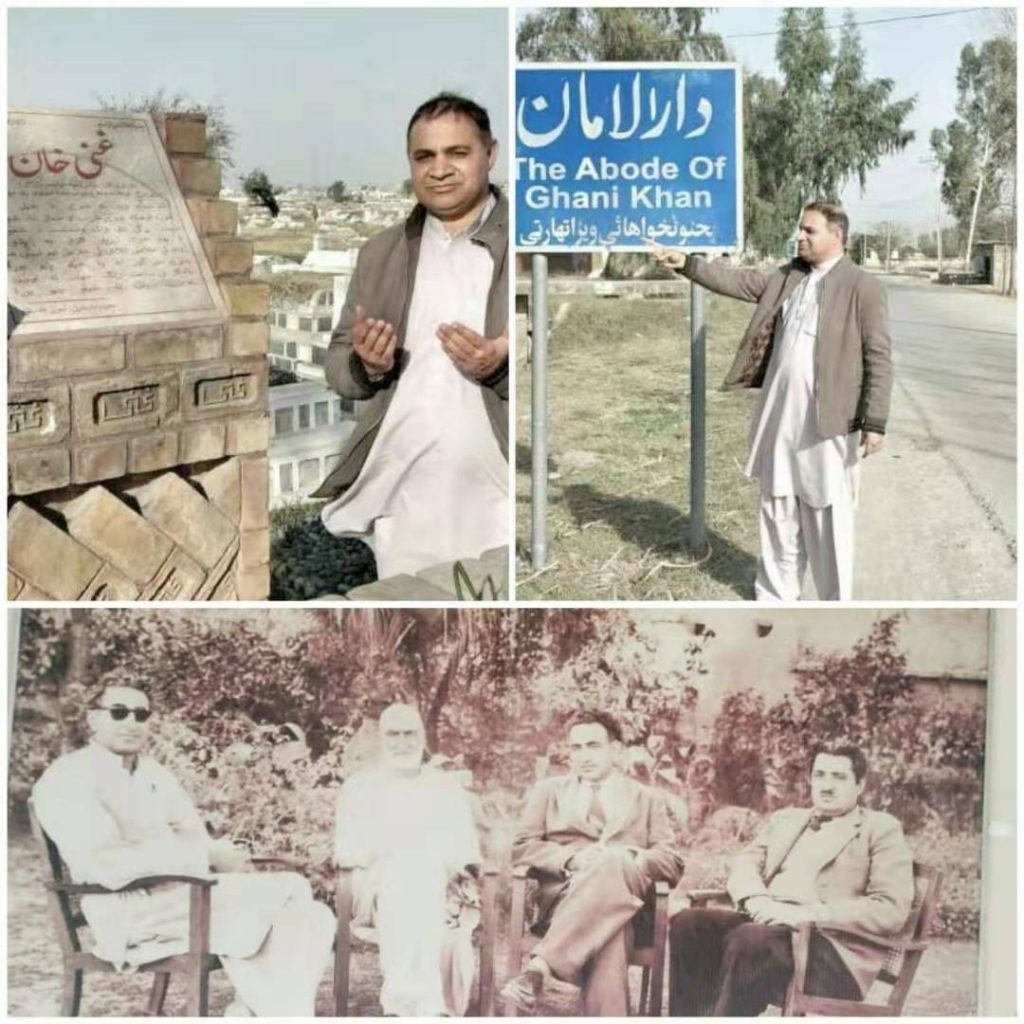A Nameless Droplet Embracing The Ocean: A Tribute To Ghani Khan – OpEd
Charsadda District is one of the most famous places in Khyber Pakhtunkhwa (KP) province of Pakistan, being visited by people from all over the country in general, and KP province in particular. Among Charsadda’s main attractions are; Charsadda Chappal, the Stone-wash Fabric, traditional Razar Mithai (sweetmeat), Mota Chawal (locally produced rice), and Sardaryab’s fish. But that is not all there is about Charsadda, for there is much more to this historic place.
My longing and love for Charsadda Chappal and the Stone-Wash Fabric take me to the district every year. A few days back, I was in Charsadda yet again. This time, however, the visit was for entirely different purposes. This time, it wasn’t about adding to my wardrobe or some fancy footwear. This time, I was following a calling from the depths of my soul. I was visiting the abode of Ghani Khan. Sometime earlier, he had come into my dream and asked me to visit him. I couldn’t dare ignore the command. As soon as I entered Ghani Khan’s abode and walked through the magical garden of his residence, I was engulfed by a strange yet soothing feeling. It was as if Ghani Khan was somewhere near but just out of sight.
On the main wall of the sitting area in the hujra, I saw the large framed photograph of Bacha Khan along with his three sons. The picture fails to hold the aura of these towering gentlemen as it becomes difficult to look elsewhere. Being profoundly inspired by his Bengali Teacher Rabindarant Tagore (the first non-European and the first lyricist to win the Nobel Prize in Literature), Ghani Khan named his residence Dar ul Aman (The Home of Peace) after Tagore’s art school (Shanti Niketan, which also means the abode of peace). Ghani Khan decorated his property so that even though it’s been twenty-five years since his passing, yet his impression and soul are eternally etched in every inch of the property.
Khan Abdul Ghani Khan (1914-1996) was the eldest son of Bacha Khan. Born with a natural talent for art and poetry, he has left an indelible mark on Pakhtun poets and writers and the entire Pashto literature. He received his early education in the country and was then sent to the UK and the USA for doing graduation in Chemical Engineering. Later on, he was called back home due to financial constraints and was admitted to the Shanti Niketan University of Rabindranath Tagore. He took journalism and English literature as his career subjects. His wife Begum Roshan, the youngest daughter of Nawab Rustum Jang Faridoonji of Hyderabad Deccan, was also a lady with high literary taste. It is pertinent to mention that she brought more than six thousand rare books on art, music, literature, and philosophy as her dowry. As far as Ghani’s philosophical approach is concerned, he always maintained the quality of his lofty thoughts while keeping his unique style of rhyming in Pashto poetry. He opposed the radical cleric mindset mainly for their attempt to get social control in the name of religion. His philosophical approach can be ranked in the top literary work of the world of literature. Similarly, he evolved a unique expression in his paintings and sculptures.
Ghani Khan rests in his ancestral graveyard, a few kilometers from his residence. Locating his grave in the large cemetery is a challenge. Ghani Khan home’s caretaker gave me a clue by pointing towards a brick wall and saying to look for the same types of bricks (engraved by Ghani’s name in Urdu explicitly made in their own bricks’ furnaces) around the grave. As I searched for his grave, the excitement only grew. Finally, when I managed to find his resting place, I was overcome by sheer emotion as was struggling to hold back my tears. There laid the great man, all alone by himself. I was feeling Ghani Khan around me, and some verses from one of his poems were striking my mind like a script as if the verses were written for the situation through which I was going in the graveyard. The English translation of the verses is “A nameless droplet in a nameless sea; no need to feel lonely in your desert, to behold you, at last, shall come a sore Ghani Khan.”
Although Ghani Khan left this world on March 15, 1996, neither any literary department nor any cultural or government organization took the responsibility so far to formally arrange a program every year for paying salutation to this great philosopher and writer on his death anniversary. Though his family members in their private capacity organize a program on his death anniversary at “Bacha Khan Markaz,” I wonder why they don’t think to arrange such events about Ghani Khan at his residence to let people not only understand his philosophy from the speakers but also to give them a chance to feel his philosophy while being present physically at “The Home of Peace.” A tribute is presented to Ghani Khan on his 25th death anniversary with an urge from the readers to visit his abode and graveyard, which will certainly arouse their interest in exploring his precious art and literary work. Ghani Khan is not only for writers, poets, artists, and philosophers, but he is for everyone to be equally explored.


